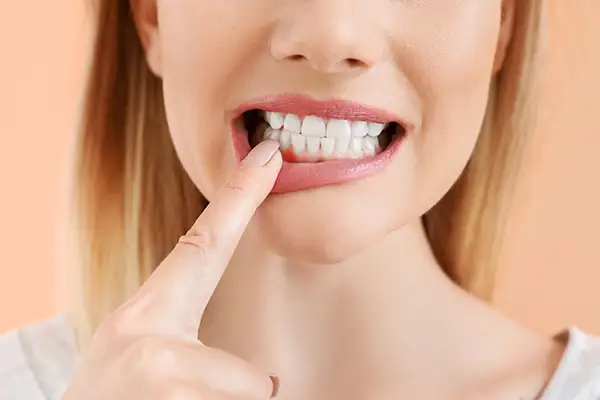What to Do if You Notice a Sore on Your Gums That Won't Go Away
Posted on 7/15/2025 by Highridge Dental Care Folsom |
 A sore on your gums that won't go away can be concerning, and it's important to take action to address it. While some mouth sores heal on their own within a week or two, persistent sores could indicate an underlying issue that requires professional attention. In this article, we'll explore the potential causes of persistent gum sores and guide you on what to do if you encounter one. A sore on your gums that won't go away can be concerning, and it's important to take action to address it. While some mouth sores heal on their own within a week or two, persistent sores could indicate an underlying issue that requires professional attention. In this article, we'll explore the potential causes of persistent gum sores and guide you on what to do if you encounter one.
Potential Causes of Persistent Gum Sores
Several factors can contribute to persistent sores on your gums. These include:
| • |
Canker sores: These common mouth ulcers are small, round, and painful. They usually appear on the inside of the lips, cheeks, or gums and can last for up to two weeks. |
| • |
Gum disease: Also known as periodontal disease, gum disease is an infection of the gums that can cause redness, swelling, bleeding, and receding gums. If left untreated, it can damage the bones supporting your teeth and lead to tooth loss. |
| • |
Oral cancer: While less common, oral cancer can manifest as a sore that doesn't heal. It's crucial to seek immediate medical attention if you notice any suspicious lesions or sores in your mouth that persist for more than two weeks. |
| • |
Other causes: Other potential causes of persistent gum sores include ill-fitting dentures, nutritional deficiencies, and viral or bacterial infections. |
What to Do if You Have a Persistent Gum Sore
If you notice a sore on your gums that doesn't go away within a week or two, it's essential to schedule an appointment with your dentist. They will examine your mouth, review your medical history, and perform any necessary tests to determine the cause of the sore.
Based on the diagnosis, your dentist will recommend the appropriate treatment. This may involve:
| • |
Over-the-counter pain relievers: For canker sores, over-the-counter pain relievers like ibuprofen or acetaminophen can help manage discomfort. |
| • |
Antibiotics: If the sore is caused by a bacterial infection, your dentist may prescribe antibiotics. |
| • |
Scaling and root planing: This deep cleaning procedure removes plaque and tartar buildup from your teeth and gums, which can help treat gum disease. |
| • |
Oral surgery: In some cases, surgery may be necessary to remove diseased tissue or treat other underlying issues. |
Maintaining Good Oral Hygiene
Regardless of the cause of your persistent gum sore, maintaining good oral hygiene is crucial for promoting healing and preventing future problems. Here are some essential oral care practices:
| • |
Brush your teeth twice a day: Use a soft-bristled toothbrush and fluoride toothpaste to remove plaque and bacteria from your teeth. |
| • |
Floss daily: Flossing helps remove food particles and plaque from between your teeth, where your toothbrush can't reach. |
| • |
Use an antiseptic mouthwash: An antiseptic mouthwash can help kill bacteria and reduce inflammation in your gums. |
| • |
Schedule regular dental checkups: Visiting your dentist for regular checkups and cleanings is essential for maintaining good oral health and detecting any potential problems early on. |
By following these tips and seeking professional care when needed, you can effectively address persistent gum sores and maintain a healthy smile. Remember, early detection and treatment are key to preventing complications and ensuring optimal oral health. |
|
